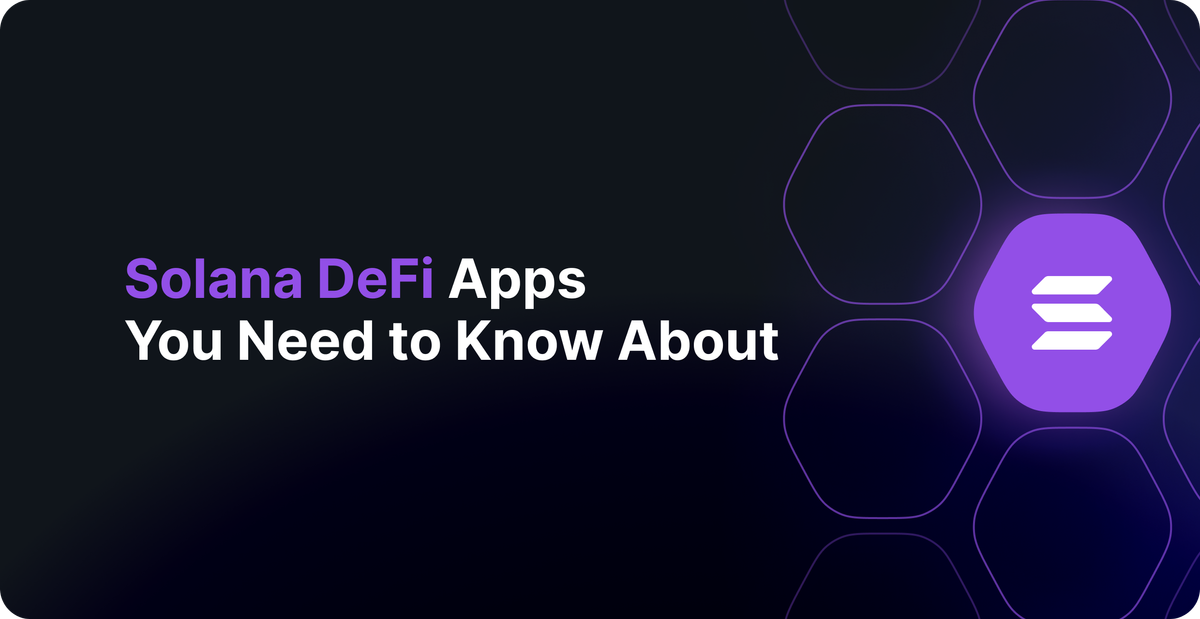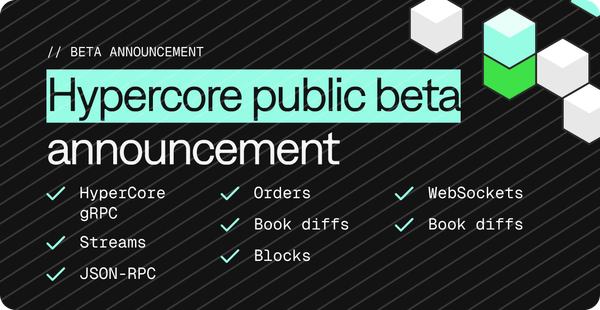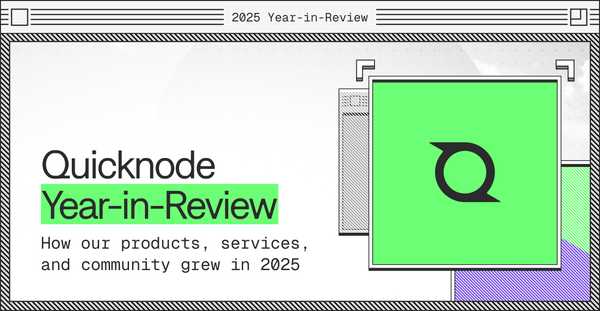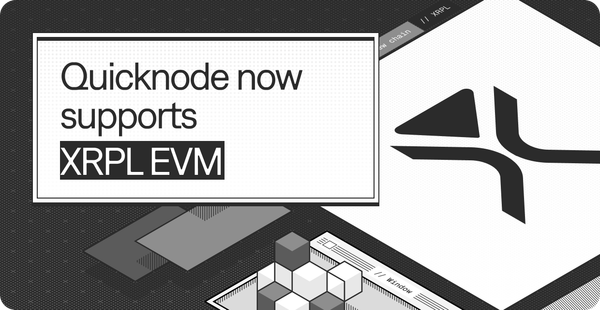Solana Decentralized Finance Apps You Need to Know About
Solana DeFi is seeing record trading volumes and millions of new users. This blog explores the major dApps that contribute to the DeFi boom.

$168 Billion in TVL and north of $1 Billion in daily volumes — Solana is recording newer highs with 2024 being a major breakthrough year.
The year started with the boom in stablecoin transfer volume happening on Solana, exceeding $300 billion in January 2024. This made Solana the second-largest blockchain for stablecoin transfers after Ethereum. The introduction of token extensions opened doors for more participants in the ecosystem.
After that, the memecoin frenzy has taken all the momentum up and has carried the Solana DeFi through the year. All the negative “‘Only Possible on Solana’ (OPOS) memes have now turned into a positive narrative for the blockchain as it is further primed for larger adoption.
In this article, we’ll look at different segments where developers can actively contribute and participate in its ongoing growth.
Overview of Solana’s DeFi ecosystem
DeFi apps on Solana distinguish themselves from dApps on other blockchains due to the following attributes:
- Minimal transaction costs: The transaction fees on Solana are significantly lower than those on many other blockchains. This cost efficiency makes Solana DeFi apps more accessible for frequent and small-scale transactions.
- Rapid transaction processing: With an average block time of around 400 milliseconds, Solana’s DeFi apps offer near-instant transaction confirmations
- High transaction throughput: Solana’s DeFi apps can handle up to 2,000 transactions per second (TPS), even more under test conditions, preventing bottlenecks during high-demand periods.
DEXs on Solana
Solana DEXs offer rapid transaction processing at a fraction of the cost found on other chains. This efficiency is crucial for traders seeking quick and cost-effective trades.
Orca
Orca is built around a Concentrated Liquidity Account Market Maker (CLAMM). It allows liquidity providers to deposit their assets within specific price ranges rather than the entire pool to earn higher returns while reducing the risk of impermanent loss.
Raydium
Raydium combines the AMM model with a central limit order book to offer fast and efficient trading. It also supports liquidity farming, and staking, and has a swap feature for quick token exchanges.
OpenBook
OpenBook is an Automated Market Maker (AMM) DEX that was forked from Serum, another exchange on Solana. It operates on a Central Limit Order Book (CLOB) model, similar to traditional stock exchanges, allowing for efficient order matching and transparent trading.
Pump.Fun
Pump.fun is the major catalyst in the extraordinary growth of DeFi on Solana. Popular for celebrity and news-led coins aka memecoins, Pump.fun has recorded highs like total revenue crossing $50.9 million.
Pump is known for launching memecoins with just a few clicks that people can ape into or dump easily.
Derivative markets
Derivative markets on Solana ensure that derivatives contracts are settled at fair prices closer to their theoretical values, thanks to their low latency and high throughput.
Mango Markets
Mango Markets offers a comprehensive suite of features for borrowing, lending, trading, and leverage.
With this platform, users can trade both immediate settlements (spot) and futures contracts (perpetuals), place limit orders directly on OpenBook, access flash loans, and earn interest on deposited assets.
Jupiter
Jupiter is a DEX aggregator similar to 1inch on Ethereum; it acts as a middleware between users and various decentralized exchanges (DEXs) on Solana. It recently launched GMX-style perpetual futures, allowing users to leverage long and short positions on SOL, ETH, and WBTC.
Drift
Drift is a decentralized exchange (DEX) specifically designed for perpetual futures contracts on various crypto assets. Users can trade with leverage (up to 10x currently), borrow or lend at variable yield rates, stake/provide liquidity, and swap spot tokens.
Lending and borrowing
Lending and borrowing apps on Solana offer faster loan processing, and quicker updates to interest rates as they can leverage the blockchain’s high transaction speeds. They also offer features like cross-margin trading, which allows users to leverage their entire portfolio for loans and can be more efficient than isolated margin systems.
Solend
With Solend, users can deposit crypto assets (like SOL, USDC, USDT) to earn interest or borrow against them at competitive rates, leverage crypto holdings to amplify potential gains, or stake SOL tokens in the protocol to earn rewards.
MarginFi
MarginFi is a permissionless platform for borrowing and lending assets. Users can deposit supported assets (like SOL, and USDC) as collateral and borrow against their value in other supported assets to leverage holdings for potential gains without selling them.
Alternatively, they can also deposit crypto assets into the MarginFi lending pool and earn passive income through interest generated from borrowers.
Yield farming
Yield farming pools on Solana allow users to earn rewards by providing liquidity to various decentralized exchanges (DEXs) and other financial applications.
Kamino
Kamino is a concentrated liquidity management (CLMM) platform built on Solana. Unlike traditional AMMs, Kamino allows liquidity providers to concentrate their liquidity within a specific price range, potentially amplifying their rewards.
Users deposit tokens into vaults and Kamino's quantitative models automatically manage their positions within the chosen price range to maximize yield for depositors.
Meteora
Meteora uses a Dynamic Liquidity Market Maker (DLMM) to optimize yields dynamically. The protocol automatically shifts funds between lending protocols and concentrates liquidity within specific price ranges of AMMs to potentially amplify returns and make trades with zero slippage.
Liquid staking
Liquid staking apps on Solana make staking and unstaking processes much faster and accessible to users compared to blockchains like Ethereum, where high gas fees can be a significant barrier.
Jito
Jito is the largest liquid staking provider on Solana, allowing users to stake their SOL tokens and earn staking rewards without locking them up for the entire staking period. It also offers features like MEV rewards sharing with stakers, which democratizes access to additional rewards and boosts users’ overall returns.
Marinade Finance
Marinade is an automated liquid staking platform that automatically delegates the staked SOL to high-performing validators chosen by the core team. Users can either receive mSOL which can be used across different Solana platforms or choose to stake their SOL natively to earn compounded staking rewards.
JPool
JPool is a Solana stake pool that allows SOL holders to stake their tokens and earn rewards without managing stakes. Once users deposit SOL into the pool, they receive JSOL tokens, which represent their share in the pool and grow constantly as rewards are accrued.
Arbitrage Bots
Arbitrage bots are meant to take advantage of price discrepancies between different exchanges in the market by trading the price gap.
Photon
Photon is a super quick Solana trading platform and a DEX screener. The highlights of Photon is its one-click trading, preset trades customizations, and wallet integration. Notably, its chart data is 5-10 seconds ahead of other DEX screeners.
However, this speed comes at a cost as Photon charges 1% trading fee, nearly twice its peers.
BonkBot
BONKbot is a Telegram-based Solana trading bot which helps users make instant trades via token address input. The major USPs are the real-time alerts and automated strategies BONKbot offers to users, especially without any wallet connection or slippage adjustment needed.
SolTradingBot
SolTradingBot is a popular trading bot on Solana with a comprehensive suite of tools dedicated to both beginners and pro traders. It assists traders with unique features like profile tracking, copy trading, and automated functions. Apart from this, it makes trading easier with one-click selling and token sniping capabilities.
Data Aggregator
DEXscreener
DEXScreener aggregates data from top Solana DEXes like Raydium, Orca, Meteora, FluxBeam, 1Intro, and more.
It offers real-time data and insights along with necessary tools, from tracking new token launches to technical analysis tools, to trade cryptocurrencies on Solana. DEX Screener also protects users interest by offering ready-made analysis of a token's safety with liquidity lock, social media links, and more.
Birdeye
Birdeye is a popular Solana data aggregator tracking over 20 major DEXes on the blockchain. It provides comprehensive, real-time data with low latency to assist users in their trading. Birdeye offers honeypot warning, whale activities, and community sentiment feature, serving as an ideal companion for informed decision making.
How to start building DeFi apps on Solana?
To get started with building DeFi apps on Solana, developers can follow these steps:
- Familiarize yourself with Solana's architecture, consensus mechanism (Proof of History), and its unique features by going through our Solana documentation.
- Install the necessary tools for Solana development, including the Solana CLI tools. You'll also need an integrated development environment (IDE) that supports Rust, like Visual Studio Code.
- Set up a node to interact with the blockchain and access data. Traditionally, developers might set up and maintain their blockchain nodes. But infrastructure solutions like QuickNode and Infura remove the overhead of hardware setup, node synchronization, and ongoing maintenance.
- Begin by writing and deploying simple smart contracts to understand how they work in Solana. Use the Solana Program Library (SPL) as a reference for standard functionalities.
- Lastly, build a front-end interface using React or Vue.js, test your application, and deploy it on the mainnet.
Will Solana consolidate as the playground for DeFi?
DeFi apps on Solana are experiencing remarkable growth. Their cost efficiency, quick transaction finalities, and high throughput make them attractive to developers and users alike.
However, it's essential to consider potential challenges and competition in the DeFi space. Ethereum, as the pioneer of DeFi, continues to dominate with its extensive ecosystem and network effects. And Solana's success will depend on its ability to maintain its unique advantages.
Developers play a crucial role in this —they need to constantly explore new use cases, actively solve challenges, and collaborate with the Solana community to foster growth and adoption.

About QuickNode
QuickNode provides the tools and resources builders need to create incredible products. With globally-balanced infrastructure, guaranteed reliability, a user-friendly interface, and end-to-end customer support, QuickNode allows enterprises to realize their ideas onchain rapidly.
Learn more about QuickNode’s rollup offerings: Build your own custom blockchain | QuickNode.





